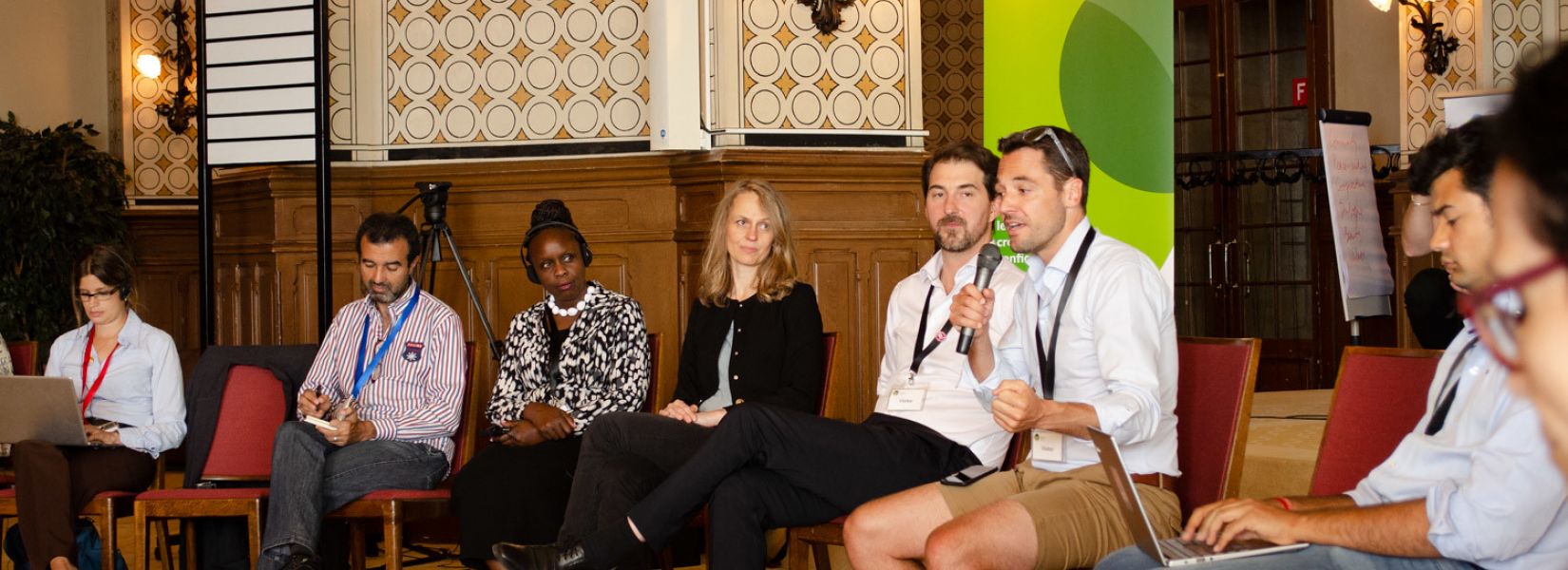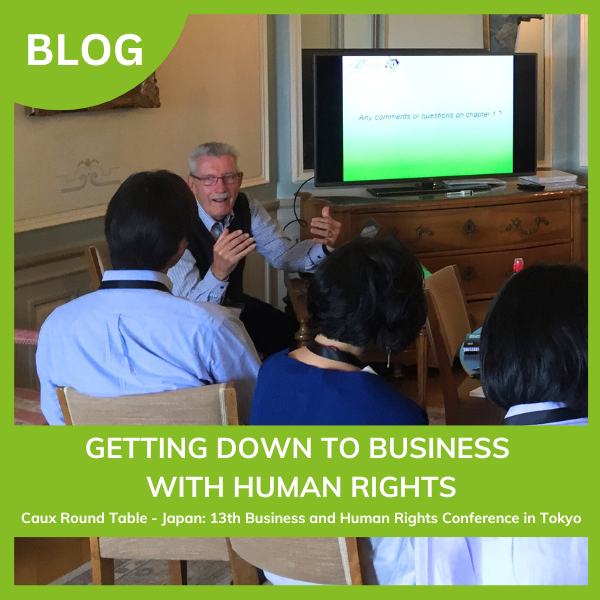Reconciling ethics and profit: Two Swiss-French entrepreneurs’ gamble
Ethical Leadership in Business 2018
29/06/2018
In 2013, Christophe Barman is 29 and CEO of a thriving business. Following an evening organised by his company, he learns that a merger has been engineered by one of its shareholders. Unable to identify with the shareholder’s values and vision which focus on profit and large scale development, he decides to leave his position and join Loyco, an outsourcing business.
“It was easy for me to get by as my values were very clear,” recounted the young entrepreneur Christophe Barman whilst talking at the Ethical Leadership in Business conference, during the Caux Forum 2018. He explained that Loyco “was created on the basis of people’s ability to come together around a set of group values,” namely pleasure, collective intelligence, flexibility and inspiration. Now roughly 100 people work for Loyco and it has a turnover of 13 million Swiss Francs. Even more importantly, 73% of its capital is held by its employees. Indeed, Loyco recently decided to implement Holacracy, or as it is known internally, Loycocracy. In other words, a horizontal governance system which removes hierarcy, and encourages profit-sharing and employee autonomy in decision-making.
For his part, Jonathan Normand has worked for several international organisations in the field of risk assessment. In 2006, at the height of the subprime crisis, he too decided to quit his management position in pursuit of “giving meaning” to his work. He joined B Lab, the global B Corp (B Corporation) certification programme for “responsible” businesses. To date, more than 60,000 companies across the globe, including 900 in Switzerland, have carried out a social and environmental impact assessment thanks to this programme. Jonathan Normand’s role within the company is to find entrepreneurs who identify with B Lab’s values. For B Lab the notion of ethical leadership is important and means “making a profit for the greater good”.
Nowadays, for these two entrepreneurs reconciling ethics and the quest for profit is essential: “We can no longer afford to do business like we did 20, 30 or 40 years ago. The world has changed, things move quickly, the world is in an environmental and societal crisis” explains Christophe Barman. It is time to redefine the notion of business performance and respond to the important social and environmental challenges of our times. For this reason, Initiatives of Change (IofC) encourages entrepreneurs to make decisions based on the values of integrity and honesty, and to contribute to a fairer and more sustainable world. It is in this context that we have heard Christophe and Jonathan’s stories; two entrepreneurs who have become actors of change.
The success of companies such as Loyco, or certifying businesses such as B Corp, prove that it is possible to make a profit whilst remaining true to one’s values. Demand is also changing: consumers are choosing products and services which fulfil their search for meaning. Ethics and profits are no longer polar opposites. Making allies of these two aspects is not just for the philanthropists and a handful of organisations but rather a reality and an economic necessity.
Lucie Wirz, Communications Intern 2018































